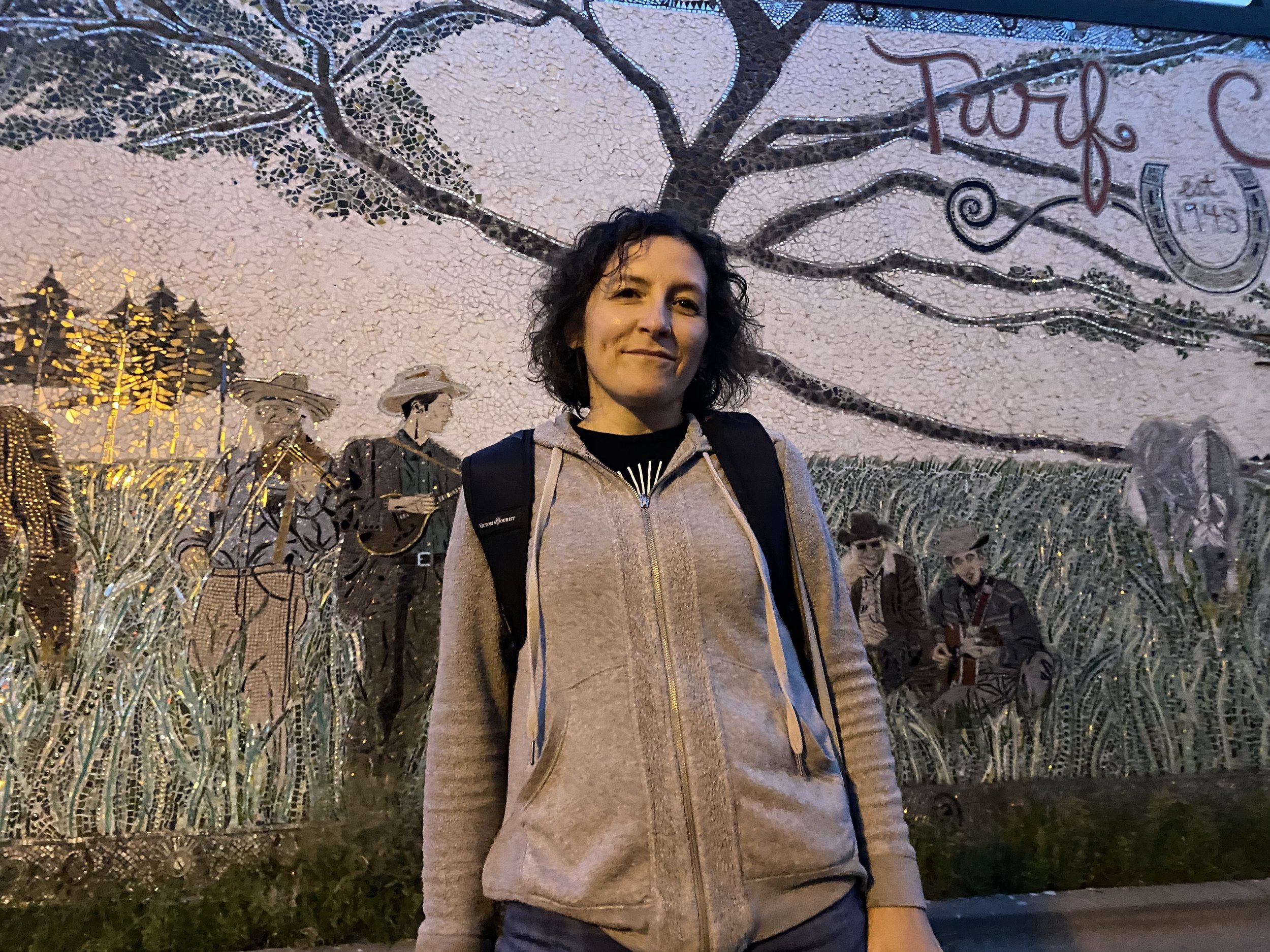Music Review: Derek Pritzl & the Gamble, ‘Great Disaster’
The Wisconsin band serves up a round of gritty, road-tested songs about working-class life and whiskey-soaked love.
It adds an extra interest to an album to know it comes after a long hiatus from recording. In some cases it’s due to a recent band reunion. Other times, songs have been honed live for years and the recording is a culmination of that refinement. Such is the case with Derek Pritzl & the Gamble’s new album, Great Disaster. For about five years, Pritzl and his band used the last hour of an open mic he hosted in Milwaukee’s Bay View neighborhood to evolve their own material.
Sometimes resembling current Americana rock (think Jason Isbell and the 400 Unit), other times channeling more throwback sounds of outlaw and 90s-era country, Pritzl’s music catches the ear with familiar elements without sounding at all derivative, channeling them into his own distinctive sound. Similarly, his voice bears similarities to Isbell’s but also Bob Seger at his belty best, powerful and raspy but with a warm, smooth undercurrent that creates an instant affinity with listeners.
The Gamble is a band of journeymen whose comfort and connection with one another is evident even in a studio recording. Andrew Koenig (guitar), Nick Lang (drums) and Gavin Hardy (bass and backing vocals) are known for playing together in various configurations for several bands over the years, including Buffalo Gospel and Long Mama. In the hands of ubiquitous Minnesota artist/musician/producer Erik Koskinen, Derek Pritzl & the Gamble’s musical cohesion becomes a sonic masterpiece.
Lyrically the album tells a story of learning and resilience through hard work, hard living, and love and heartbreak. The opening track, “Over My Shoulder,” relates a journey from the Midwest to the South and back north again, and the wisdom gained along the way: “I’m a little bit closer now … A little bit closer to be doing what I was born to do.” The song feels like a manifesto, setting the stage for the authentic, road-tested storytelling to come on the rest of the album: “I’m still singing these old heartbreak songs / The only difference is every word is ringing true.”
On the next track, “Oregon,” Pritzl demonstrates his knack for delivering that truth in a way that can resonate for anyone’s unique life situation by mixing highly specific details (“Gonna watch the old sun fade away / On the back porch in your bathrobe”) with universal observations (“Everybody’s just trying to make it through their own way”).
“Old Love Songs” takes the trope of a love song about writing a love song in a new, tongue-in-cheek direction: The narrator gets consumed with expressing his love through songwriting to the detriment of everything else in his life, even the object of his affection. “I tried to cut the lawn and pay them bills, forgot it was your birthday too / All because I was just too damn busy writing those love songs for you.”
Still, it was time well spent if one of those songs was “Embers,” an earwormy waltz about rekindling love when all seems (almost) lost:
I threw you a tune
A final hail mary
Under the pretense it was a mistake
You saw through the smoke, you didn’t bring water
You poured on a can of the highest octane
It burns the last of the embers
Lighting up my heart like a fourth of July
It burns the last of the embers
And some flames refuse to die
It’s a somewhat rare silver lining of love in an album that packs in its share of heartbreak, like in “So Close to Lonely.” A mournful pedal steel intro paves the way for a classic country tear-in-beer ballad; by the end there’s nothing left to do but “pour whiskey on my problems til I wash all my lonely down.”
The more musically upbeat but just as thematically downtrodden “Taker” explores heartache from another angle, detailing the consequences of selfishness and late nights spent away from home, until you’re left “just staring at that suitcase, the letter that she wrote.” It ends with a warning to fellow barflies of what’s to come: “I ain’t saying I did my best, I damn sure should have tried … I made my bad decisions / I live with ‘em all night long.”
The gritty landscape of streets and bars continues through in the atmospheric “Ossippi,” where the narrator is sitting in a bar “back on a stool in Ossippi, a little drunk and too stoned …. Ended up right where I belong / Homesick and hellbound.” But even in the vividly seamy “Old Streets,” where we spot a “business guy trying to buy a gram” and a “concrete bed for a homeless man,” there’s an affinity and affection for the rough and rowdy side of life: “these streets are home to all my friends.”
The last track of the album takes us back where it started with “Midwest,” an unvarnished look at being working class in a “land of plenty” where “it’s all work and there ain’t much rest,” and where “men are judged by what they get done and how they deal with what they been dealt.” There’s both resignation and pride when that line gets flipped by the end of the song (and album): “Go ahead and judge all that I’ve done by how I deal with what I’ve been dealt.”
Derek Pritzl & the Gamble celebrate the release of Great Disaster two nights in a row (with Erik Koskinen opening) in Wisconsin: Friday March 10 at the Appleton Beer Factory and Saturday March 11 at Promises in Milwaukee!
Carol Roth is a full-time marketing copywriter and the primary music journalist and social media publicist for Adventures in Americana. In addition to studying the guitar and songwriting, Carol’s additional creative side hustle is writing self-proclaimed “trashy” novels under the pseudonym T.A. Berkeley!



